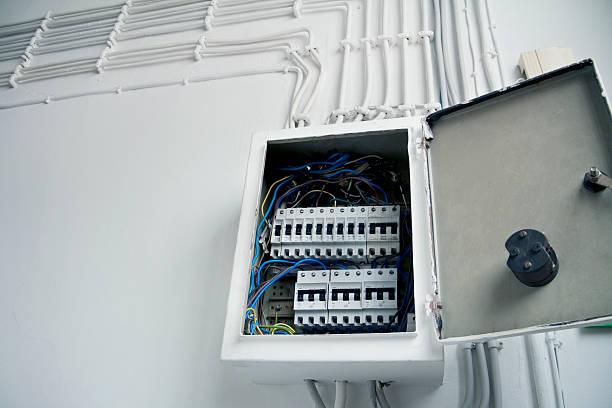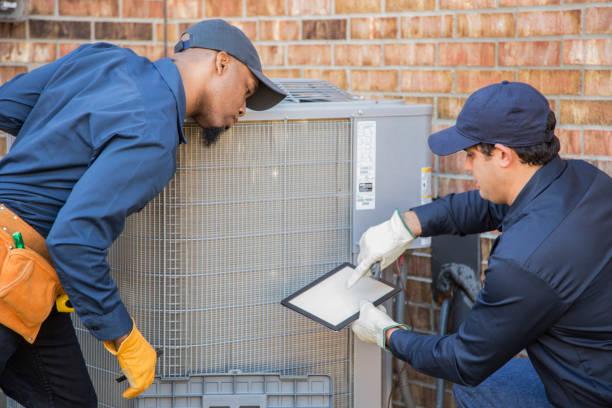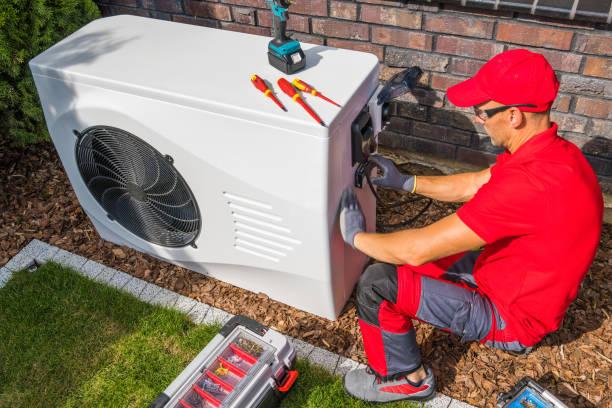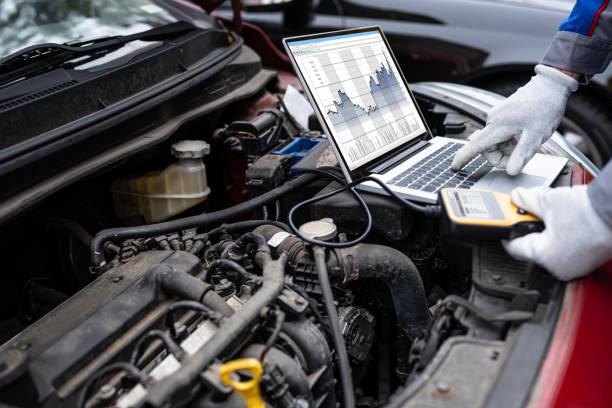Picture this: It’s 2 AM on a sweltering Houston night, the humidity is suffocating, and your AC system suddenly stops working. The temperature inside your home quickly climbs past 85 degrees, making sleep impossible and putting your family’s comfort—and health—at risk. This scenario isn’t just uncomfortable; in Houston’s extreme heat, it’s a genuine emergency that demands immediate professional attention.
When your air conditioning fails unexpectedly, you need more than just a repair service—you need a trusted partner who understands the urgency of your situation and responds with speed, expertise, and reliability, regardless of the hour.
Understanding AC Emergencies in Houston’s Climate
Houston’s subtropical climate creates unique challenges for HVAC systems. With average summer temperatures reaching 94°F and humidity levels often exceeding 75%, your air conditioner works harder here than almost anywhere else in the country. This constant strain significantly increases the likelihood of unexpected breakdowns, especially during peak cooling months from May through September.

According to the National Weather Service, Houston experiences an average of 106 days above 90°F annually, with heat indices frequently surpassing 105°F. These extreme conditions don’t just affect comfort—they pose serious health risks, particularly for vulnerable populations including elderly residents, young children, and those with chronic health conditions.
What Qualifies as an AC Emergency?
Not every AC issue requires emergency service, but certain situations demand immediate attention:
- Complete system failure during extreme temperatures: When outdoor temperatures exceed 90°F or drop below 40°F
- Electrical burning smells or visible sparks: Indicating potential fire hazards
- Refrigerant leaks: Characterized by hissing sounds or ice formation on the unit
- Water leaks causing property damage: Especially in multi-story homes where ceiling damage can occur
- Carbon monoxide concerns: For systems with gas furnaces showing signs of malfunction
- Medical necessity: When household members require climate-controlled environments for health reasons
Common Causes of Emergency AC Breakdowns
Understanding why AC systems fail helps homeowners recognize warning signs before complete breakdown occurs. In Houston’s demanding climate, several factors contribute to emergency situations.
Compressor Failures
The compressor serves as your AC system’s heart, circulating refrigerant throughout the system. When it fails, your entire cooling system stops functioning. Compressor failures often result from electrical issues, refrigerant problems, or simple wear and tear from Houston’s extended cooling season. Statistics from the Air Conditioning Contractors of America indicate that compressor failures account for approximately 23% of emergency AC calls in hot, humid climates like Houston’s.
Electrical Component Malfunctions
Houston’s frequent thunderstorms and power fluctuations put significant stress on AC electrical components. Capacitors, contactors, and circuit boards are particularly vulnerable to voltage spikes. A failed capacitor—one of the most common emergency repairs—can prevent your system from starting or cause it to shut down unexpectedly.

Refrigerant Leaks and Low Levels
Refrigerant doesn’t simply “run out”—when levels drop, it indicates a leak somewhere in the system. These leaks not only reduce cooling capacity but can cause compressor damage if left unaddressed. The Environmental Protection Agency reports that refrigerant leaks affect approximately 30% of residential AC systems, with many becoming emergency situations when homeowners delay repairs.
The True Cost of Delayed AC Repairs
Many Houston homeowners hesitate to call for emergency service, hoping the problem will resolve itself or waiting until regular business hours to save money. However, this delay often results in more extensive damage and higher repair costs.
| Initial Problem | Immediate Repair Cost | Cost After 48-Hour Delay | Potential Additional Damage |
|---|---|---|---|
| Frozen evaporator coil | $200-$400 | $800-$1,500 | Compressor damage, water damage |
| Capacitor failure | $150-$350 | $500-$1,000 | Motor burnout, compressor strain |
| Small refrigerant leak | $250-$500 | $1,000-$3,000 | Compressor failure, complete system replacement |
| Clogged drain line | $100-$250 | $500-$2,000 | Ceiling damage, mold growth, drywall replacement |
As HVAC industry expert Michael Thompson, a certified master technician with 25 years of experience, explains: “In Houston’s climate, what starts as a minor issue at 6 PM can become a major system failure by midnight. The combination of heat, humidity, and continuous operation creates a perfect storm for cascading failures.”
What to Expect from Professional 24/7 Emergency Service
Professional emergency AC service goes far beyond simply showing up at odd hours. When you call a reputable service provider like 75 Degree AC, you’re accessing a comprehensive support system designed to restore your comfort quickly and efficiently.
Immediate Response Protocol
True emergency service begins the moment you call. Professional dispatchers are trained to assess your situation, provide immediate guidance to prevent further damage, and accurately prioritize service calls based on severity. They’ll ask specific questions about your system’s symptoms, your household’s specific needs, and any safety concerns.

Comprehensive Diagnostic Process
Emergency technicians arrive equipped with advanced diagnostic tools and extensive parts inventory. Unlike standard service calls, emergency responses require technicians to quickly identify multiple potential failure points. Professional technicians follow a systematic approach:
- Safety assessment: Checking for electrical hazards, gas leaks, or structural concerns
- System evaluation: Testing all major components to identify primary and secondary issues
- Root cause analysis: Determining why the failure occurred to prevent recurrence
- Repair strategy: Developing solutions that address immediate needs while considering long-term reliability
- Quality verification: Testing repairs under load conditions to ensure proper operation
Preventive Maintenance: Your Best Defense Against Emergencies
While 24/7 emergency service provides crucial support when disasters strike, regular maintenance remains your most effective strategy for avoiding emergency situations altogether. The U.S. Department of Energy confirms that properly maintained AC systems experience 75% fewer emergency breakdowns than neglected units.
Essential Maintenance Tasks
Professional AC maintenance in Houston should occur at least twice annually, ideally in spring and fall. These comprehensive inspections include:
- Cleaning or replacing air filters monthly during peak season
- Checking and adjusting refrigerant levels
- Cleaning evaporator and condenser coils
- Testing and calibrating thermostats
- Inspecting and tightening electrical connections
- Lubricating moving parts
- Checking condensate drains and clearing blockages
- Testing start capacitors and replacing weak components
- Measuring temperature differentials and airflow rates
Houston-Specific Maintenance Considerations
Houston’s unique climate demands additional maintenance attention. High humidity accelerates mold growth in drain pans and ductwork, while salt air from the Gulf Coast corrodes outdoor unit components faster than in inland areas. Professional technicians familiar with Houston’s conditions know to pay special attention to these region-specific challenges.
Choosing the Right Emergency AC Service Provider
Not all emergency AC services are created equal. When your comfort and safety are on the line, selecting the right provider becomes critical.
Key Qualifications to Verify
Before you need emergency service, research and identify qualified providers. Look for:
- Proper licensing: Texas requires HVAC contractors to hold state licenses and liability insurance
- NATE certification: North American Technician Excellence certification indicates advanced technical training
- Better Business Bureau accreditation: Demonstrates commitment to customer satisfaction
- Manufacturer certifications: Authorized service providers for major brands receive specialized training
- Established local presence: Companies with deep Houston roots understand local challenges
- Transparent pricing: Reputable providers offer clear, upfront pricing even for emergency calls

Red Flags to Avoid
During emergencies, desperate homeowners sometimes fall victim to unscrupulous operators. Avoid services that:
- Demand full payment before beginning work
- Refuse to provide license or insurance information
- Pressure you into unnecessary system replacements
- Lack physical business addresses or established online presence
- Cannot provide references from recent emergency calls
Emergency Preparedness: Creating Your AC Crisis Plan
Smart homeowners prepare for AC emergencies before they occur. Developing a comprehensive emergency plan ensures you respond quickly and effectively when systems fail.
Building Your Emergency Kit
Keep these items readily accessible:
- Contact information for trusted emergency AC services
- System documentation including model numbers and warranty information
- Portable fans for temporary relief
- Extra air filters
- Flashlights for checking outdoor units at night
- Circuit breaker labels clearly identifying AC circuits
- Digital photos of your system’s normal operating condition
Temporary Cooling Strategies
While awaiting emergency service, implement these strategies to maintain bearable temperatures:
- Close blinds and curtains to block solar heat gain
- Use portable or ceiling fans to create air circulation
- Avoid using heat-generating appliances
- Open windows during cooler evening hours if outdoor humidity permits
- Create cross-ventilation by strategically opening windows on opposite sides of your home
- Stay hydrated and wear light, breathable clothing
- Consider relocating to the coolest room, typically on lower floors
The Technology Behind Modern Emergency AC Service
Today’s emergency AC services leverage advanced technology to provide faster, more accurate repairs. GPS dispatching ensures the nearest available technician reaches your home quickly, while mobile diagnostic tools allow technicians to identify problems that would have required multiple visits just a few years ago.
Smart Diagnostics and Predictive Maintenance
Modern HVAC systems increasingly incorporate smart technology that can predict failures before they occur. WiFi-enabled thermostats and system monitors can alert both homeowners and service providers to developing problems, potentially preventing emergency situations entirely. According to a 2024 industry report from ACHR News, homes with smart HVAC monitoring experience 40% fewer emergency breakdowns.

Understanding Emergency Service Pricing
Emergency AC service typically costs more than standard repairs, but understanding pricing structures helps you make informed decisions and avoid overcharges.
Typical Emergency Service Rates
In Houston, emergency AC service rates generally include:
- After-hours service fee: $75-$200 above standard rates
- Weekend rates: 1.5x standard hourly rates
- Holiday rates: 2x standard hourly rates
- Diagnostic fees: $100-$200 (often waived if repairs are performed)
- Parts markup: 50-100% above wholesale cost
However, reputable providers like 75 Degree AC maintain transparent, flat-rate pricing structures that eliminate surprise charges, even during emergency calls.
FAQ: Emergency AC Repair & Maintenance
How quickly should emergency AC service arrive?
Professional emergency services in Houston typically guarantee response within 2-4 hours, with many arriving within 60-90 minutes for true emergencies. Factors affecting response time include technician availability, weather conditions, and call volume during heat waves.
Will insurance cover emergency AC repairs?
Homeowner’s insurance typically covers AC repairs only when damage results from covered perils like storms or fires. However, home warranty plans often cover emergency repairs for systems that fail due to normal wear and tear. Review your specific coverage before emergencies occur.
Can I perform any emergency repairs myself?
While some basic troubleshooting is safe—like checking breakers, replacing filters, or ensuring thermostats are properly set—most AC repairs require professional expertise. Attempting complex repairs can void warranties, cause additional damage, or create safety hazards.
How can I tell if my AC problem is truly an emergency?
Consider it an emergency if: temperatures exceed 90°F or fall below 40°F, you smell burning or gas, water is actively leaking and causing damage, or household members have medical conditions requiring climate control. When in doubt, call for professional assessment.
What’s the difference between emergency repair and replacement?
Emergency repairs address immediate failures to restore cooling, while replacement involves installing entirely new systems. If your system is over 12 years old and requires frequent emergency repairs, replacement might be more cost-effective long-term.
Conclusion: Your Partner in AC Emergencies
Living in Houston means your air conditioning system isn’t just about comfort—it’s about health, safety, and quality of life. When emergencies strike, having access to reliable, professional 24/7 emergency AC service can mean the difference between a minor inconvenience and a major crisis.
The key takeaways for Houston homeowners are clear: recognize the signs of impending AC failure, maintain your system regularly to prevent emergencies, choose qualified emergency service providers before you need them, and respond quickly when problems arise to minimize damage and costs. By following these guidelines and partnering with trusted professionals, you can protect your home, family, and investment from the challenges of Houston’s demanding climate.
Remember, emergency AC situations don’t follow convenient schedules. Whether it’s a holiday weekend, the middle of the night, or during Houston’s hottest day on record, professional help is just a phone call away.
Don’t wait for your AC emergency to become a crisis. Save our emergency hotline (713) 598-2737 in your phone now, and experience the peace of mind that comes from knowing Houston’s most trusted emergency AC service is ready to respond 24/7. When your comfort can’t wait, neither do we. Call 75 Degree AC for immediate emergency response—because every degree matters when Houston’s heat is at your door.
